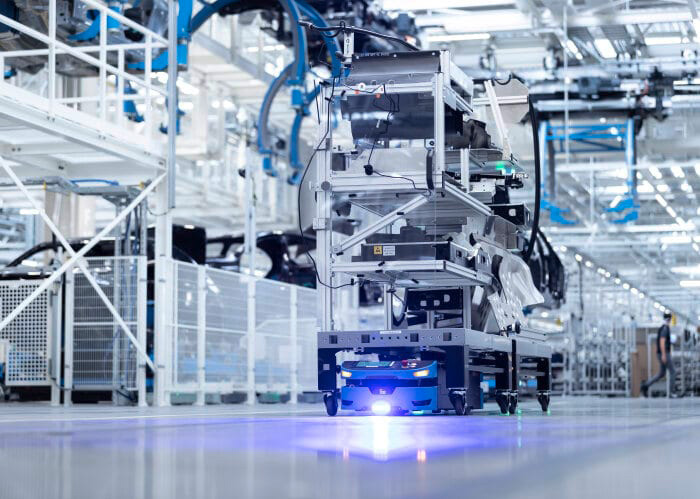
Telefonica Germany Case Study
Telefonica Germany has implemented the world’s first 5G mobile network for automobile production for Mercedes Benz, in “Factory 56” in Sindelfingen, covering an area over 20,000m2.
The main drivers for the implementation of a private 5G IoT Network in Sindelfingen was the optimization of the existing production processes in the plant with the help of new features which 5G can enable, such as the data linking or product tracking on the assembly line. With a private 5G network, all processes can be optimised and made more robust, and if necessary adapted at short notice to prevailing market requirements. Furthermore, the 5G mobile communications standard links production systems and machines together in an intelligent manner, thereby supporting the efficiency and precision of the production process. A further benefit of using a local 5G network is that sensitive production data do not have to be made available to third parties.
The first use cases that have been implemented in the factory include: Automated Quality Control, where the automobile is able to be tested on the production line itself, removing the need for testing post-production; Deployment of AGVs through seamless connectivity; Connected screwdrivers across the production line.
Telefonica has played the role of the project leader and responsible for e2e implementation, integration and maintenance of the whole private network solution. Additionally, Telefonica has worked to evolve the solution, introduce new use cases and replicate it across multiple sites. The network vendor is Ericsson, who has supported the project through network design and implementation. The solution is supported by an end-to-end SLA to provide confidence and trust to Mercedes in the system. It is a complete 5G NSA standalone private network, which will evolve to a 5G SA architecture, as soon the technology will allow it.
The success of the implementation has been clear to see. Ultra-reliable low latency communications have allowed Mercedes-Benz to take full advantage of new use cases such as Automation, AI and predictive maintenance, whilst improving flexibility, efficiency and quality of production lines in real-time.
Back to: Manufacturing Sector